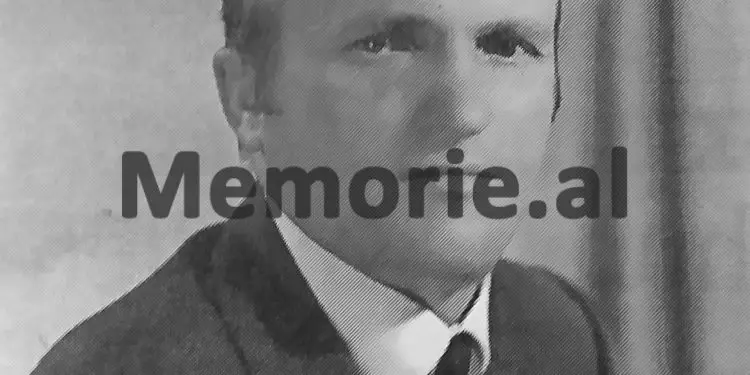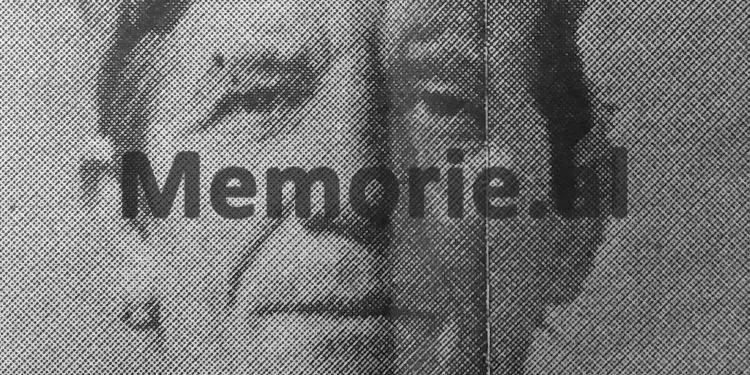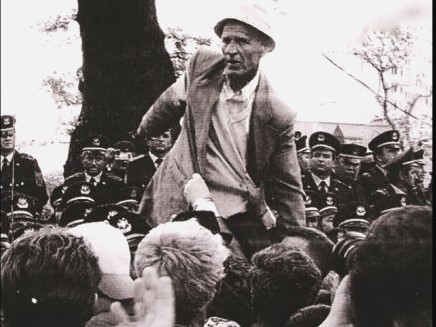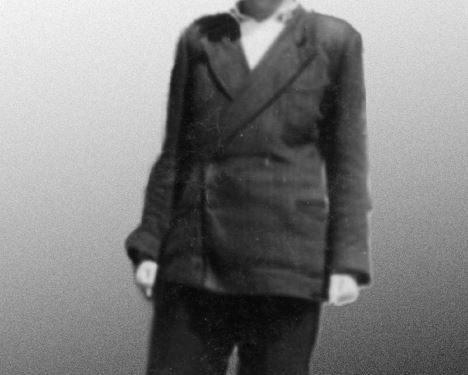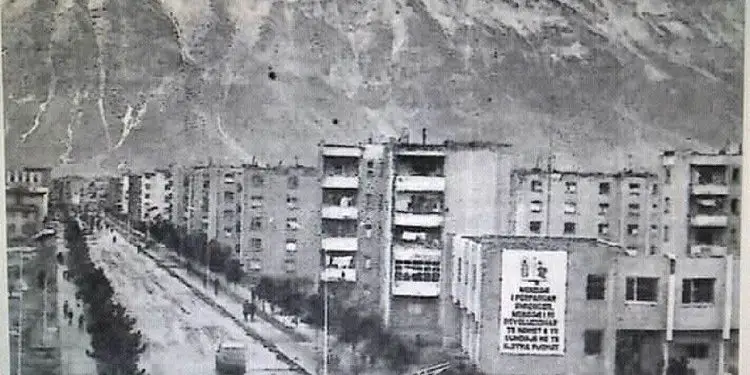By Elisabeta Ilnica
The second part
Memorie.al / He were a 25-year-old teacher, who worked in the deep villages of Kukes, but with such great ideals that he sought to overthrow a dictatorial system. And the only way to achieve this goal was the killing of Enver Hoxha, against whom a concrete assassination was planned and attempted in Kodër-Kamze. A brave utopia at the end of the 60s, of a group of eight intellectuals, which also included the main character of this article, Xhavit Gjana, whom he introduces us to in this interview. In fact, what you will read below is not just an interview, but a testimony of psychological, physical and sexual terror in the cells of the communist dictatorship of Enver Hoxha and his successor, Ramiz Alia.
Continues from the previous issue
Avdi Gjana, originally from the village of Bicaj in Kukës, who has tried prison and psychiatry, during the dictatorship, because he refused to vote. An act that alarmed the structures of the Labor Party of Kukes and “all the way up”, because the result-cliché was broken; “100 percent”.
In 1994, it was decorated by the president of that time, Prof. Dr. Sali Berisha, for contribution to the first democratic processes. For 18 years in a row, he has directed the association of former political prisoners of Kukes, in whose offices we met him.
An early autodidact of Italian, French and Russian, he often chooses phrases from these languages during conversation. “I spent 9 years in prison, for ‘agitation and propaganda’, and then I spent 3 years in a psychiatric hospital, with the only argument, why I didn’t go to vote in the elections of November 12, 1978, even though the staging was one of the most the bottoms.
In democracy, I became the father of a son, but I have nothing to inherit. I get half of my pension, someone else wants to take my house, this is how my sacrifice against the dictatorship is being rewarded”, says Gjana, who in his early youth during communism, worked for a short period as a mathematics teacher. The time when he was arrested for the first time, in 1969…!
Mr. Gjana, why were you arrested?
For “agitation and propaganda”. We were 9 relatives and villagers from my area, who were arrested in 1969. We spent a year in the investigation cells in Tirana, and then they brought us to Kukës. It was March 3, 1970. On March 3, the trial began, on the 8th it ended. The judgment was in the group. In conclusion, the others were sentenced to 8 years in prison, while I was sentenced to 9 years.
What agitation had you done?
Tymnaja was like one of my distant cousins, together with one of his uncle’s sons, thought to kill Enver Hoxha when they were soldiers. Nothing true, however I did 9 years in Burrell prison. I was released on May 10, 1978. However, I only enjoyed freedom for 3 months. My second imprisonment was in February 1979.
For what reason were you imprisoned again?
On November 12, 1978, the elections took place and I did not go to the polls.
Why didn’t you go?
The chairman is elected among equals. I was no match for him. Like my father, he has not been equal, since like me he rotted in prison for 10 years. He too “for agitation and propaganda”…
Didn’t they come to your house to tell you to go to the polls?
They certainly came, but I kept saying; “Yes, but here, I will come. After a while…! Except a little later…”! So I continued until the voting closed at 19:00.
Didn’t they try to take you by force and take you to the polls?
No. They brought me relatives, school friends, etc., until 18:30, to convince me. They came begging me to vote. The last meeting of that day was at 18:55, by the secretary of the Executive Committee of Kukës, in a red car. He also came to meet me, but he disappeared. They could not achieve a hundred percent result in the polls.
So the elections were in November 1978, but your arrest took place in February 1979. If the reason was non-participation in the voting, why were you not arrested on the day of the voting, but waited 3 months?
My case caused a sensation and was normally discussed at length before action was taken; how to officially describe me as irresponsible, how to justify my absence from voting. From Kukësi, they sent me to Tirana, where Aranit Çela would judge whether or not I had the right to not vote.
Legally I was right, so there was nothing they could do. After 2 weeks, they returned me to Kukes, where they found another way to punish me. By court decision, I was isolated in a state institution.
What institution is it about?
They took me “with a lift” to Elbasan (laughs). I did 19 months of isolation, in psychiatry, because I was declared mentally incompetent, with chronic schizophrenia. However, I was never treated, never given any medicine, but only isolated. I left there on October 2.
It didn’t take long, after 2 months, I was arrested again. It happened 2 weeks before he killed Mehmet Shehu. They took me again to Elbasan, where I was isolated for another 14 months. In total, I spent almost 3 years in psychiatry.
Between prison and psychiatric hospital, where did you feel better?
In prison, because you had responsible people.
When did you get out of psychiatry?
I was released in March 1983 and returned to the village.
From 1983 to 1991, what were you up to?
I have dealt with writing, systematization of studies, etc. I continued to not have the capacity to act, by court order.
When it was time to vote again, did you go? If I’m not mistaken it was voted in April 1986, and then you were free…?
Even though I was released, I was disenfranchised. I told you that I had been deprived of the ability to act. I have regained my right, after democracy has arrived, again with a doctor’s certificate and a court decision.
And when pluralism was announced, did you vote in the first democratic elections?
No, I didn’t vote.
For what reason?
Because the candidate they brought to Kukës was a man who belonged to the first system, he had served devoutly in communism.
So when did you vote for the first time?
There is no first time. I have never voted. Memorie.al




